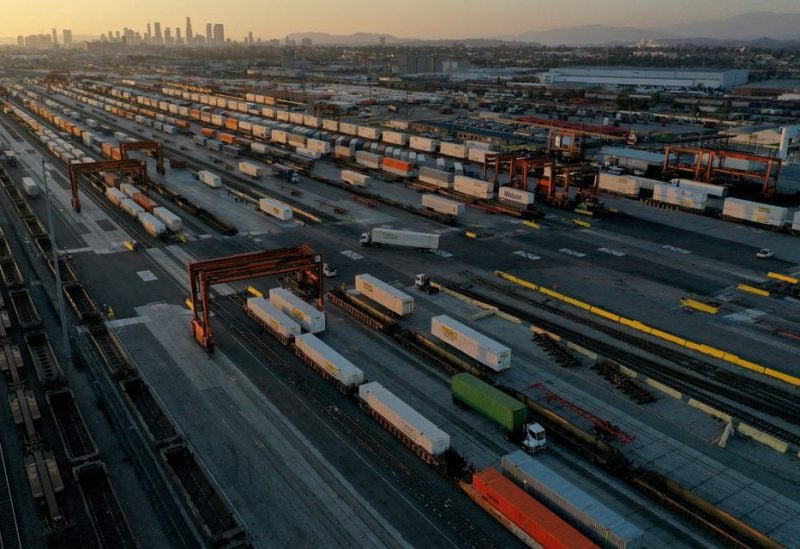
An aerial view of gantry cranes, shipping containers, and freight railway trains ahead of a possible strike if there is no deal with the rail worker unions, at the Union Pacific Los Angeles (UPLA) Intermodal Facility rail yard in Commerce, California, U.S., September 15, 2022. REUTERS
On Monday, more than 400 organizations urged Congress to get involved in the protracted railroad labor dispute that threatens to halt shipments of food and fuel, strand rail passengers, and cause billions of dollars in economic harm.
Impacts of a potential strike could be felt as early as December 5, according to warnings from the U.S. Chamber of Commerce, National Association of Manufacturers, National Retail Federation, American Petroleum Institute, National Restaurant Association, American Trucking Associations, and American Farm Bureau Federation, among other organizations.
Workers in four unions have rejected a tentative contract deal announced in September, while eight approved it.
“The risks to our nation’s economy and communities simply make a national rail strike unacceptable,” says the letter to congressional leaders seen by Reuters. “Therefore, absent a voluntary agreement, we call on you to take immediate steps to prevent a national rail strike and the certain economic destruction that would follow.”
A rail traffic stoppage could freeze almost 30% of U.S. cargo shipments by weight, stoke inflation and cost the American economy as much as $2 billion per day by unleashing a cascade of transport woes affecting U.S. energy, agriculture, manufacturing, healthcare and retail sectors.
The letter said a potential strike could result in “interruptions in the delivery of fertilizers, chlorine, and other products essential to clean water, our food supply, and electricity generation.” It warned a strike could halt passenger railroad Amtrak and commuter rail services that “would disrupt up to 7 million travelers a day.”
After the largest railroad union in the nation rejected a tentative agreement one day earlier last week, the U.S. Chamber of Commerce pleaded with politicians to intervene.
A train closure has been labeled “unacceptable” by the White House. The structure for the tentative agreement struck in September between major carriers like Union Pacific Corp (UNP.N) and a dozen unions representing 115,000 workers was made public in August by President Joe Biden’s Presidential Emergency Board.
Railroads and unions have until December 9 to come to an agreement. If they don’t, there may be a strike or a railroad lockout, unless Congress steps in. However, railroads would stop shipping dangerous products at least four days before a strike deadline.